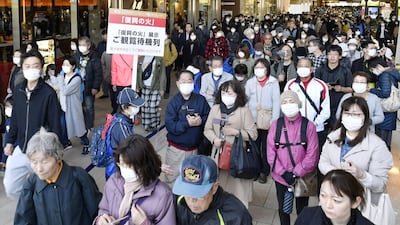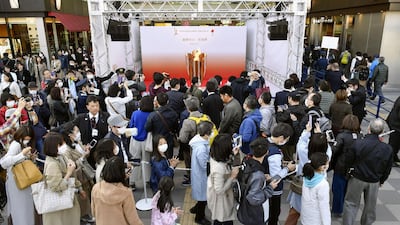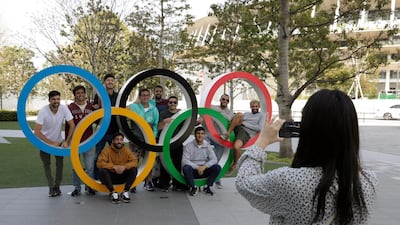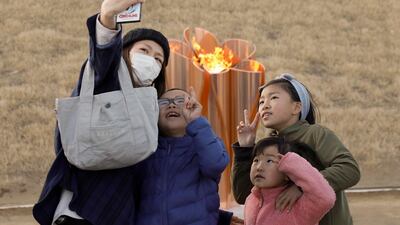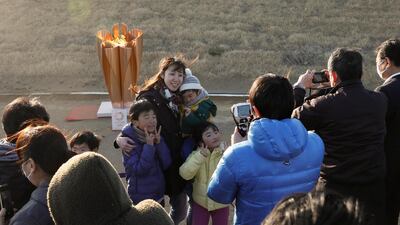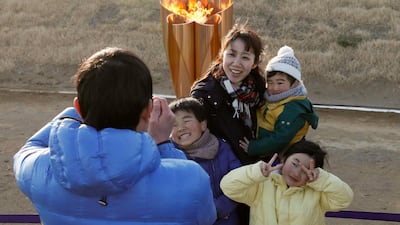The International Olympic Committee has given itself a deadline of four more weeks to consider a postponement of the Tokyo Olympics, but insists that cancelling the Games is not on the agenda.
The IOC held an executive board meeting on Sunday afternoon amid mounting calls from athletes and national federations to postpone the July 24-August 9 Summer Games due to the coronavirus pandemic.
IOC chief Thomas Bach ruled out cancelling the Games outright, but said detailed discussions will take place over the coming weeks on several scenarios including possibly changing the July 24 start date, but emphasised that a cancellation of the Games would not solve any of the problems or help anybody.
It is the first time the IOC has countenanced the idea of postponing the Games, although a decision to delay would now seem the most likely outcome with an estimated one billion people on lockdown in an unprecedented attempt to stem the tide of Covid-19 infections.
The IOC sparked controversy earlier this week by insisting it remains "fully committed" to the planned start date of July 24 despite the pandemic having brought sporting events around the globe to a standstill in the past couple of weeks.
The news follows unconfirmed reports earlier Sunday that Tokyo 2020 organisers had been asked to make "alternative plans" if the Games need to be postponed due to the coronavirus pandemic, according to two sources familiar with the process.
Much like the IOC, the Japanese government has been bullish in its assertions that the Olympics will go ahead as planned.
Prime Minister Shinzo Abe has staked his legacy as Japan's longest-serving premier on the Games and is hoping for a boom in tourism and consumer spending. At risk is more than $3 billion (Dh11bn) in domestic sponsorship, an Olympic record, and some $12bn spent on preparations.
"Finally, we have been asked to make a simulation in case of a postponement," one of the sources, an official close to the organising committee who is involved in drafting the scenarios, told Reuters.
Both sources spoke on condition of anonymity.
"We are making alternative plans - plan B, C, D - looking at different postponement time-frames," said the official, adding the scenarios included cost estimates for different delays.
Neither Tokyo 2020 organisers nor the International Olympic Committee responded to a request for comment. The government of Japan could not be reached for comment.
Athletes from several sports have criticised the IOC's advice that they continue to prepare for the Games "as best they can" given the huge disruption already caused.
Global Athlete, an athlete-led movement, joined the likes of US Track and Field and the Spanish Football Federation in saying the Games should be delayed.
A statement said: "Athletes want to be part of a solution to ensure the Games are a success but under the current global restrictions that are limiting public gatherings as well as closing training facilities and borders, athletes do not have the ability to appropriately prepare for these Games and their health and safety must come first.
"Sport has a duty of care to protect their athletes. Public health must be a priority over sporting event.
"By asking [athletes] to carry on as normal and continue to train for these Games clearly puts their physical and mental health at risk."
The statement further called on broadcasters and sponsors to show "flexibility and understanding" in allowing the Games to be staged safely.
Nine-time Olympic track and field champion Carl Lewis said he wants a delay of up to two years for the Tokyo Olympics but rejected any bid to cancel them outright.
The 58-year-old US athletics legend told Houston television station KRIV that he backs the calls for postponement by USA Track and Field and USA Swimming due to disruptions caused by the coronavirus pandemic.
"The best part about that is they're creating some solidarity in their message," Lewis said.
"I just think it's really difficult for an athlete to prepare, to train, to keep their motivation if there's complete uncertainty. That's the hardest thing.
"Because it's a health issue, it's beyond everyone's control. I think most athletes are accepting that."
On Saturday, US Track and Field sent an email calling for the US Olympic and Paralympic Committee to make representations about delaying the Games as the "right and responsible thing to do" in the circumstances.
USA Swimming, meanwhile, had already asked the USOPC to push for a one-year postponement as the impact of the lockdown began to hit home.
Many athletes have struggled to continue training while being forced to stay home to avoid spreading the deadly virus.
"The athletes cannot prepare for an Olympic Games if they don't have an Olympic Trials, if they don't have competition," Lewis said.
"I think USATF, in this case, stepped up. I think they're creating a voice that puts the athletes first and I think the athletes appreciate it."
The Spanish Football Federation also called for this summer's Olympics to be postponed.
